Translational Pediatric Sarcoma Research
- Functional and Structural Genomics
- KiTZ

Prof. Dr. Dr. Thomas Grünewald
Head of Division
The mission of the division of Translational Pediatric Sarcomas Research, which corresponds to the KiTZ division of the same name, is to improve treatment options for children and adolescents affected by sarcomas.

What We Do
We aim at uncovering disease mechanisms that can be used diagnostically and therapeutically to improve the long-term chances of recovery of our young patients. The focus lies on new methods that are essential for correct diagnosis and the choice of the best possible therapy. We also investigate less aggressive therapies and new approaches to overcome drug resistance of tumors. In this regard, one special objective is to decipher the interactions between acquired mutations and innate natural variants of the genome, which can play a decisive role in the development and progression of cancer, particularly in Ewing sarcoma.
We aim at developing novel therapeutic strategies based on new insights into the molecular mechanisms of disease following two major lines of research (see research areas). Our investigations start with the analysis of the patients’ tumors in situ, followed by studying patient-derived cell lines using a wide variety of in silico, in vitro, and in vivo techniques.
The division is supported by the Foundation Barbara und Wilfried Mohr Stiftung.
Our Research areas
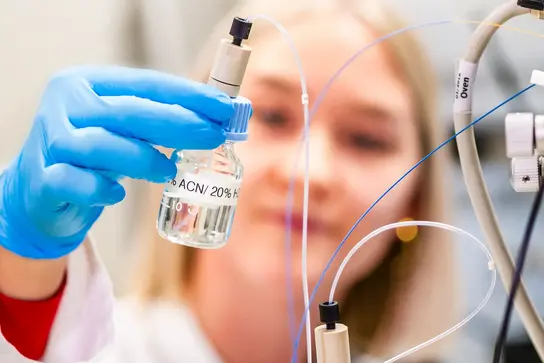
Tumorigenesis in the context of molecular signaling pathways of child development
Certain oncogenes often hijack or interfere with molecular signaling pathways important for child development, thereby conferring a considerable growth advantage to tumor cells. We explore the mechanisms through which oncogenes arrest sarcoma cells in a specific but yet largely undifferentiated state via deregulation of key developmental pathways, and how they cooperate with them to promote tumorigenesis and cancer progression.
Therapy resistance, tumor heterogeneity, and predictive biomarkers
Primary and/or secondary resistance to conventional chemotherapeutic drugs is a frequent event in pediatric sarcoma. Chemotherapy-resistance is a highly specific process in which tumors become resistant to certain drugs while maintaining (limited) susceptibility toward others. Underlying to this resistance is considerable plasticity due to intra-tumor heterogeneity, which enables the adaptation to therapeutic ‘cell stress’ on the clonal and sub-clonal level. Therefore, we strive for illuminating the (epi)genetic basics and biological mechanisms of tumor-heterogeneity in order to identify new biomarkers for individualized risk-stratification. By means of these biomarkers we can predict the response to certain treatments and better assess which targeted therapeutics may help to overcome resistance to conventional (chemo)therapeutics.
The above-mentioned research areas are addressed by three highly synergistic teams within my division of Translational Pediatric Sarcoma Research:
The team Translational Genomics (Prof. T. Grünewald) systematically establishes multi-dimensional omics-datasets of a large number of pediatric sarcomas and correlates molecular alterations with clinical data to identify new driver mutations, disease-relevant drug targets and prognostic/predictive biomarkers, and to create resources for hypothesis generation and functional validation for future projects.
The team Mechanisms of Cancer Progression (Dr. F. Cidre-Aranaz) aims at deconvoluting the multilayered process underlying cancer progression and metastasis. For this purpose, systems biology approaches based on multi-omics data and clinical information with functional in vitro and in vivo experiments will be combined to identify treatable vulnerabilities in pediatric sarcomas that can prevent metastasis.
The team Innovative Therapies (Dr. S. Ohmura) is investigating potential therapeutic targets for pediatric sarcomas in preclinical models. The focus here lies in developing and testing new targeted therapy approaches that enable more effective therapy with fewer side effects, especially for patients with chemo resistant tumors.
Meet the Team
- Show profile
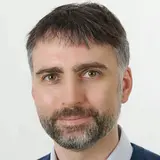
Prof. Dr. Dr. Thomas Grünewald
Head of Division
- Show profile
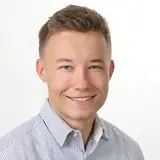
Richard Arndt
Research Student
- Show profile

Veronika Bursic
Doctoral Student
- Show profile

Martha Carreno Gonzalez
Doktorandin
- Show profile

Kalina Chavdarova
- Show profile

Dr. Florencia Cidre Aranaz
Deputy Head of Division and Team Leader
-
Anna Ehlers
- Show profile

Rafat Esso
Doktorand
- Show profile

Tobias Faehling
Doktorand
- Show profile

Florian Geyer
Doktorand
- Show profile
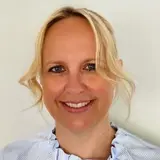
Nadine Gmelin
Research Technician
- Show profile

Nina Hahnen
Doktorandin
- Show profile

Maite Hannemann
Secretary
- Show profile

Dr. Kimberley Hanssen
Post-Doc
-
Dr. Clémence Henon
- Show profile

Annika Jeschke
Doktorandin
-
Maxim Kafka
-
Merve Kasan
- Show profile
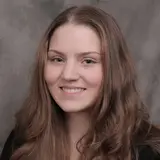
Sabrina Knoth
Technische Assistentin
- Show profile

Dr. Maximilian Knott
Post Doc
- Show profile

Zuzanna Anna Kolodynska
Doktorandin
- Show profile
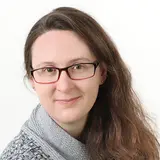
Stefanie Kutschmann
Technische Assistentin
- Show profile

J-Ann Lego
Doktorandin
- Show profile

Dr. Jing Li
Co-Team Leader
-
Lovro Marjanovic
-
Negin Moghiseh
- Show profile

Dr. Julian Musa
Wissenschaftlicher Mitarbeiter
- Show profile
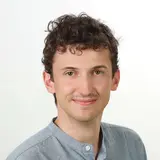
David Friedrich Obermeier
Doktorand
- Show profile
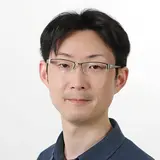
Dr. Shunya Ohmura
Team Leader
-
Siying Pek
-
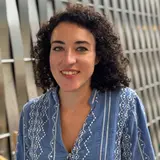
Eleonora Prodi
Scientist
-
Alina Ritter
-
Dr. Laura Romero Pérez
-
Melissa Schmucker
-
Simeon Stammberger
-
Marleen Trapp
- Show profile
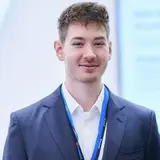
David Wolfhard
- Show profile

Angelina Yershova
Doktorandin
- Show profile
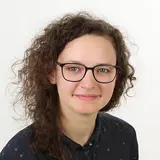
Felina Zahnow
Technical Assistant
- Show profile

Malenka Zimmermann
Doktorandin
Selected Publications
Kasan M, Geyer FH, Siebenlist J, Sill M, Öllinger R, Faehling T, de Álava E, Surdez D, Dirksen U, Oehme I, Scotlandi K, Delattre O, Müller-Nurasyid M, Rad R, Strauch K, Grünewald TGP, Cidre-Aranaz F.
Therapeutic targeting of the PLK1-PRC1-axis triggers cell death in genomically silent childhood cancer
Li J, Ohmura S, Marchetto A, Orth MF, Imle R, Dallmayer M, Musa J, Knott MML, Hölting TLB, Stein S, Funk CM, Sastre A, Alonso J, Bestvater F, Kasan M, Romero-Pérez L, Hartmann W, Ranft A, Banito A, Dirksen U, Kirchner T, Cidre-Aranaz F, Grünewald TGP
Oncogenic hijacking of a developmental transcription factor evokes vulnerability toward oxidative stress in Ewing sarcoma
Marchetto A, Ohmura S, Orth MF, Knott MML, Colombo MV, Arrigoni C, Bardinet V, Saucier D, Wehweck FS, Li J, Stein S, Gerke JS, Baldauf MC, Musa J, Dallmayer M, Romero-Pérez L, Hölting TLB, Amatruda JF, Cossarizza A, Henssen AG, Kircher T,Moretti M, Cidre-Aranaz F, Sannino G, Grünewald TGP
Cooperation of cancer drivers with germline regulatory variants shapes clinical outcomes
Musa J, Cidre-Aranaz F, Aynaud MM, Orth MF, Knott MML, Mirabeau M, Mazor G, Varon M, Hölting TLB, Grossetête S, Gartlgruber M, Surdez D, Gerke JS, Ohmura S, Marchetto A, Dallmayer M, Baldauf MC, Stein S, Sannino G, Li J, Romero-Pérez L, Westermann F, Hartmann W, Dirksen U, Gymrek M, Anderson ND, Shlien A, Rotblat B, Kirchner T, Delattre O, Grünewald TG
Additional Project Funding
Directions
This is our address:
German Cancer Research Center (DKFZ)
Division of Translational Pediatric Sarcoma Research / B410
Im Neuenheimer Feld 280
69120 Heidelberg
Germany
We are located in the main building on the 6th floor:
Room 075 - Prof. Dr. Dr. Thomas Grünewald
Room 074 - Office/Sekretariat: Dr. Florencia Cidre-Aranz / Dr. Shunya Ohmura / Dr. Jing Li
Roomm 01.06.070 - Secretary: Maite Hannemann
Room 058, 061-069 - Laboratory
For further information how to find us, please follow this link.
Get in touch with us

